Improving language supports could increase stay rate of international students in Germany
- A survey of nearly 2,000 international students studying in Germany during the pandemic shows that many would like to remain in the country after graduating to work/immigrate or to progress to another level of study
- The most challenging obstacles for these students are language barriers and difficulties in making new friends, suggesting a need for stronger international student supports at German universities
A 2021 Expatrio/DEGIS survey of nearly 2,000 international students who chose to study in Germany during the pandemic found that (1) most were drawn by the country’s no-tuition-fees policy and (2) more than half intended to stay in the country after their studies. That said, language barriers are a concern for many international students in Germany, including those who would like to stay on after graduation.
About the survey
The survey was conducted by Expatrio, a platform designed to support international students in Germany, while DEGIS is an organisation that helps international students to network and adjust to German culture.
Students from roughly 93 countries participated in the survey; most of them were studying for master’s degrees (67%). The survey was a follow-up to one conducted in 2020 and was larger than its predecessor, with 31% more student respondents. Responses were collected from August to October 2021 and reported in “Navigating the Pandemic: International Students’ Relocation to and Life in Germany 2021.”
Why do students choose Germany?
Surveyed students chose Germany primarily because of the country’s no-tuition-fees policy for all students in higher education (45%); employment opportunities were the next-most influential factor (18%), especially for Mexican and Brazilian respondents.
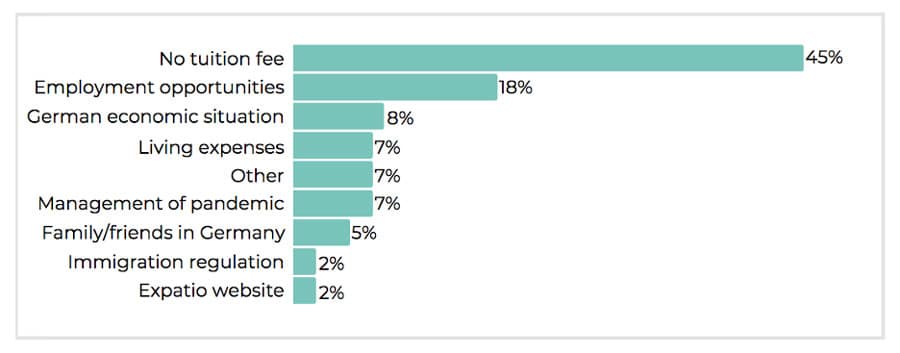
Most students who intend to stay will look for jobs
Of the more than half of students with intentions to stay in Germany, most planned to look for job opportunities (38%) or to pursue further education in the country (15%). The preferred duration of time to remain in Germany was “more than 6 years” (27%), followed by 4–6 years (19%) and 2–4 years (18%), suggesting that permanent residency is on the mind of many international students in Germany.
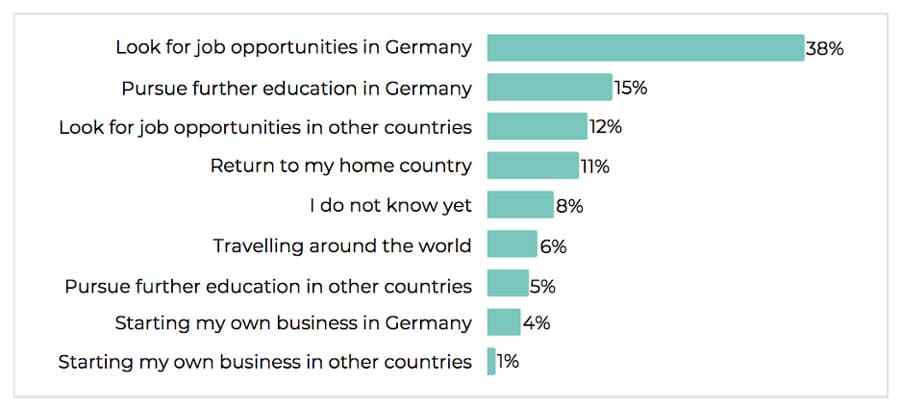
Language and social challenges are an issue
More than a quarter of surveyed students said that language difficulties had been challenging for them, and nearly as many said they had experienced challenges in meeting new friends and in finding accommodation. Feeling socially isolated may be especially pronounced among Indonesian, South Korean, Taiwanese, Pakistani, and Chinese students: more than 50% in those segments said they had felt, at least at one point, the desire to go back to their home country. Among Chinese students, this proportion rose to 70%.
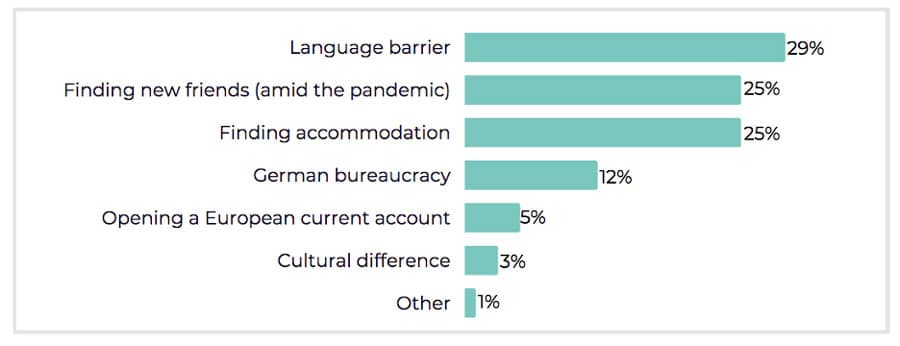
Many students were concerned enough about not being able to communicate well enough that they saw it as an obstacle to remaining in the country after graduating. Nearly half (47%) said that language barriers could pose a problem, suggesting that their concerns about language proficiency may be going unaddressed throughout their study journey.
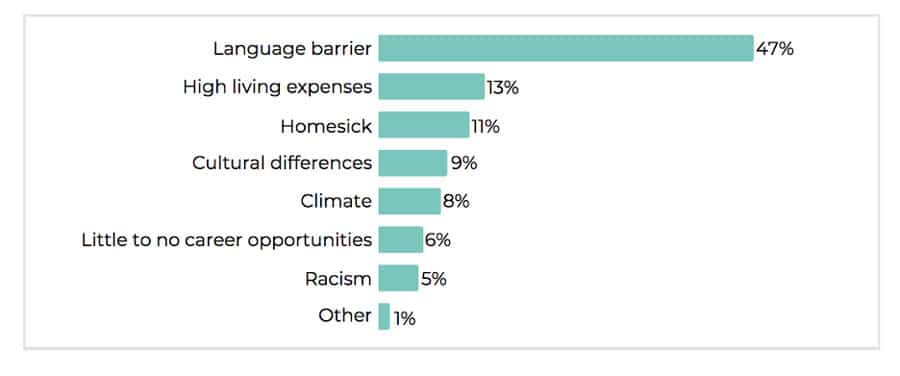
More competition in 2021 than in 2020
The survey also found that Germany was facing more competition for international students in 2021 than in 2020, especially from the US and Canada. Results showed that the Netherlands, France, and Spain are increasingly competitive outside of traditional leading destinations.
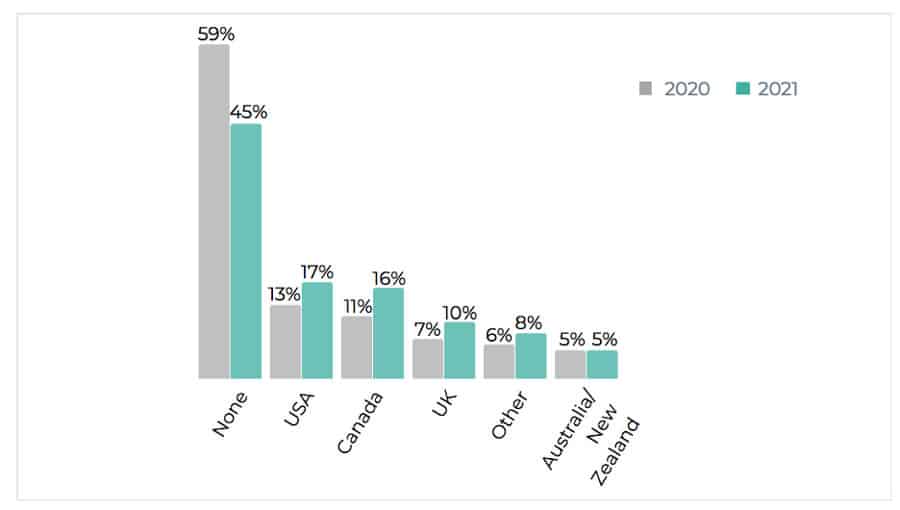
Improving language and social supports should be a priority
The survey report notes that, “Enabling internationals with a German degree to stay in the country is highly relevant for Germany's economy, as it mitigates the current skilled workers' shortage.” To that point, Tim Meyer, the co-founder of Expatrio, said:
“We are glad that Germany is increasingly popular among international students worldwide and that Expatrio is a part of an ecosystem supporting them. A diverse and inclusive society increases the population's quality of life. Policymakers should minimise bureaucratic hurdles and language barriers while fostering digitisation within the authorities.”
Germany has fared relatively well in weathering the pandemic in terms of international student enrolments. The total number of international students in German universities grew slightly in 2020/21 and German higher education institutions are reporting both a rise in total international student numbers and an increase in new international enrolments for the winter semester of 2021/22.
For additional background, please see:
















